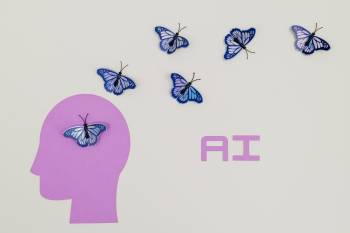Artificial Intelligence (AI) is transforming various industries, and education is no exception. With its ability to process vast amounts of data, recognize patterns, and make intelligent decisions, AI is revolutionizing the way students learn and educators teach. In this article, we will explore the significant impact of AI on education and how it is reshaping the learning landscape.

- Personalized Learning: AI enables personalized learning experiences tailored to the individual needs of students. Intelligent algorithms analyze data on students’ strengths, weaknesses, and learning styles to create adaptive learning paths. AI-powered educational platforms provide personalized content, recommendations, and feedback, empowering students to learn at their own pace and in their preferred style.
- Intelligent Tutoring Systems: AI-driven intelligent tutoring systems act as virtual tutors, providing personalized guidance and support to students. These systems analyze student performance, identify areas of difficulty, and offer targeted interventions and explanations. With AI tutors, students receive immediate feedback, adaptive assessments, and customized learning materials, fostering deeper understanding and knowledge retention.
- Enhanced Content Creation and Delivery: AI tools assist educators in creating and delivering engaging content. Natural Language Processing (NLP) algorithms can analyze and generate written content, including essays, reports, and study materials. AI-powered platforms facilitate interactive and immersive learning experiences through virtual reality, augmented reality, and simulations, making complex concepts more accessible and engaging for students.
- Intelligent Grading and Assessment: AI streamlines the grading and assessment process, reducing the burden on educators. Machine learning algorithms can analyze and evaluate student assignments, providing quick and consistent feedback. AI-powered assessment tools can also identify patterns and trends in student performance, helping educators identify knowledge gaps and adjust teaching strategies accordingly.
- Data-Driven Decision Making: AI leverages the power of data analytics to inform educational decision making. By analyzing large datasets, AI can identify trends, patterns, and correlations that help educators and administrators make evidence-based decisions. From predicting student performance to identifying areas for improvement in curriculum design, AI-driven insights facilitate continuous improvement in the education system.
- Intelligent Virtual Assistants: AI-powered virtual assistants, such as chatbots, provide instant support and information to students. These assistants can answer frequently asked questions, provide study resources, and guide students through their academic journey. Virtual assistants also offer 24/7 availability, ensuring students have access to assistance whenever they need it.
Conclusion: Artificial Intelligence is revolutionizing education by transforming the learning experience for students and empowering educators with powerful tools and insights. From personalized learning paths to intelligent tutoring systems, AI is enhancing educational outcomes and promoting student engagement. As AI continues to evolve, its impact on education is likely to expand, offering new possibilities for innovative and effective teaching and learning methods.